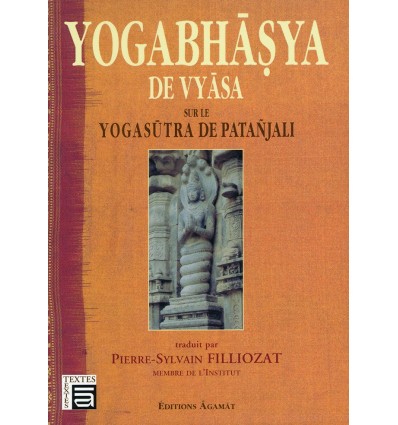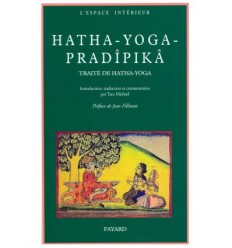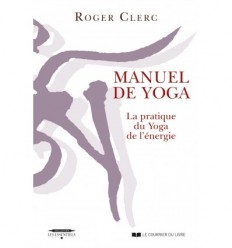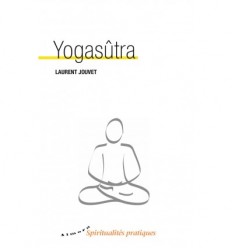Humanism • Spirituality • Well-being
-
0
Product
Products
No products
To be determined
Shipping
0,00 €
Total
Prices are tax included
Product successfully added to your shopping cart
Quantity
Total
There are 0 items in your cart. There is 1 item in your cart.
Total products
(tax incl.)
Total shipping (tax incl.)
To be determined
Yogabhasya de Vyasa
This commentary on Patanjali’s yoga sutras written by Vyasa is a true work of pure philosophy which generates ideas and addresses a number of key themes which the scholars of India would debate right throughout the course of history. Vyasa’s Yogabhasya is possibly the best introduction to Indian thought.
Description
Patanjali, a doctor of body, speech and mind, based the practice of yoga on an overall understanding of man, which he examines in depth in his Yoga Sutras. An initially pessimistic image: man’s state of being is one of suffering, but eventually optimistic: he offers a way of salvation. No other work from Antiquity better represents the most original and elevated aspects of Indian culture: a lucid observation of reality in a world of semi-consciousness and immense hope for a world of wisdom and pure consciousness. The most ancient simplification of this thought is Vyasa’s commentary. This is much more than simple annotation of the sutras. This is a true work of pure philosophy, creating a wonderful system of rationality, formulating ideas, addressing a number of key themes which the scholars of India would debate right throughout the course of history. Vyasa’s Yogabhasya is possibly the best introduction to Indian thought. A French translation is provided here. In principle, it aligns itself with the interpretation given by Vijnanabhiksu. It also points out the divergent interpretations of another of India’s great minds, Vācaspati Miśra. A wealth of exceptional resources for any research on psychology, for any philosophical reflection and for all yoga practice and teaching.
Characteristics
| Author | PIERRE-SYLVAIN FILLIOZAT | |
| Editor | AGAMAT EDITIONS | |
| Number of pages | 384 | |
| Language | French | |
| Dimensions | 15 x 21 |
Yoga
-
Books
- Western traditions
-
Western mystical authors
- Bacon Francis
- Boehme Jacob
- Bruno Giordano
- Davy Marie-Madeleine
- Desjardins Arnaud
- Dürckheim Karlfried Graf
- Eckartshausen Karl von
- Lévi Eliphas
- Maier Michael
- Maître Philippe
- Mystiques chrétiens
- Papus
- Paracelse
- Pic de la Mirandole Jean
- Saint-Yves d'Alveydre Alexandre
- Schwaller de Lubicz René Adolphe et Isha
- Sédir
- Souzenelle Annick de
- Steiner Rudolf
- Swedenborg Emmanuel
- Teilhard de Chardin, Pierre
- Vinci Léonard de
- Oriental traditions
- Oriental mystical authors
- Other traditions
- Religions
- Symbolism - Wisdom- Spiritual practices
- Philosophy- Utopias
- Prayer - Meditation- Visualisation
- Science and spirituality
- Gift books
- Arts divers (Peinture - Sculpture - Architecture - Danse ...)
- Music
- Novels - Tales - Poems
- Biographies
- Audiobooks
- Health
- Psychology
- Inner fulfilment
- Children' s books
- Death - NDE - Palliative care (support to the terminally-ill)
- Reincarnation - Karma
- Ecology - Nature
- Feng Shui - Geobiology
- Tarots - Pendulums
- Foreign mystical literature
- Coffee-table books
- Rosicrucian books
- Martinist books
- Incense
- Ritual objects
- Music
- Health and well-being
- Gift Ideas
- Rosicrucian and Martinist items
from 95€
change your mind
payment













Follow us